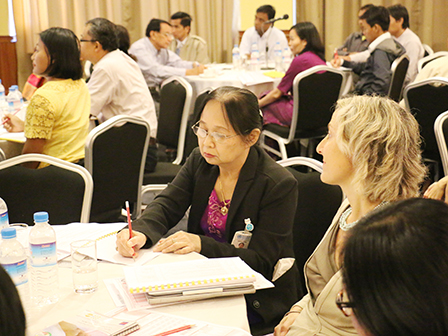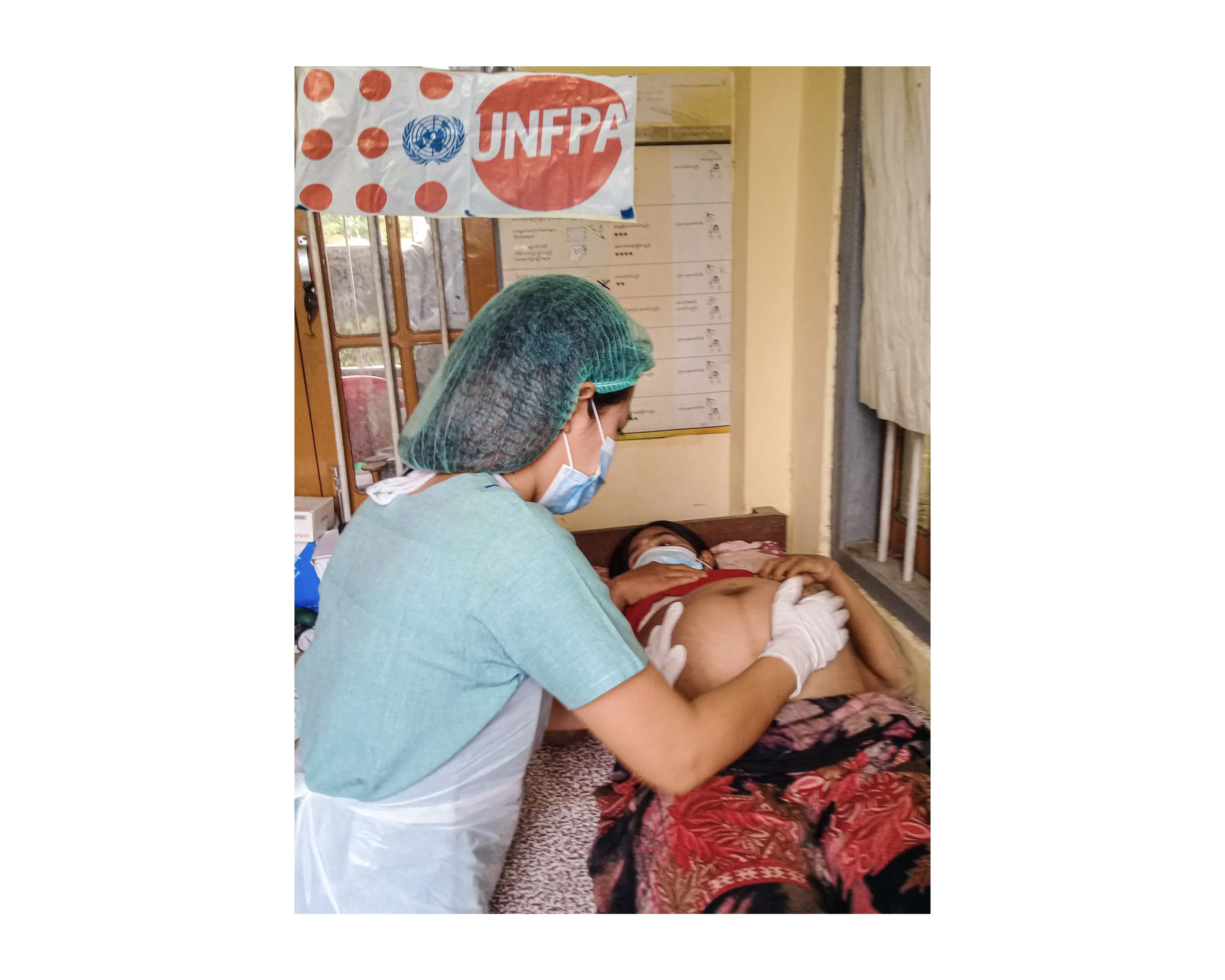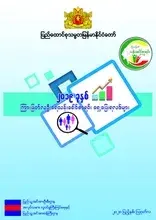Yangon - The Department of Population (DoP), with the technical support of UNFPA, held two further User Producer Consultations on the 12th and 13th January in Yangon for 98 potential census data users from UN agencies, donor organisations, INGOs, NGOs, research institutions and the private sector. U Myint Kyaing, Director General of the Department of Population and Secretary of the Central Census Committee, stressed the importance of consulting with potential users of the census data saying: "I believe that we can still make further improvements to the quality of the census by having more diverse views and ideas on what data should be produced and how it should be presented".
Dr Aug Tun Thet, Economic Advisor to Myanmar’s President, stressed that this is a national census and is a means to an end for strategies to be developed to ensure that Myanmar is economically vibrant, socially inclusive and democratic. He said it was essential to get data producers and users around the same table otherwise there is a risk that first class data will not be used. He concluded by saying that the census needs to be alive, not simply a mechanism, and that rich information needs to be produced so that everybody can use it, including the decentralised Government and the private sector.

Participants broke out in to groups to review proposed tabulated tables for the main census report and reported their recommendations back to plenary. One of the overriding concerns for all tables was that data should be as substantive as possible. For example, the population should be disaggregated by male/female down to village tract level. The Department of Population confirmed that while this data may not be available in the main results, it will be published online and 1% to 3% of raw data will also be made available to data users. They are currently looking at appropriate software to present data in the most user friendly way. A question was also raised that the current tabulated table on internal migration did not show recent migration. The DoP said that lifetime and recent migration would be addressed independently in a thematic report as it was not possible to include this information down to township level in the main results. Other revisions made included adding data on marital status starting from 15 years and under, which will show the prevalence of early/childhood marriage, and including data on disabilities among populations living in institutions. As data will be made available down to the township level, and in most cases separated by rural and urban area, questions about the ability to reveal anomalies between townships, for example, in the incidences of maternal and child deaths raised by participants were addressed.

Janet Jackson closed the meeting noting how feedback from different stakeholders, including the Government, development partners and research institutions, on how the data should be packaged had differed, highlighting the importance of producer/user consultations. She recognised the growing realisation among the people of Myanmar that engaging in census activities is a way of promoting community involvement and generating public dialogue for the future development and policies of the country.
After the dissemination and publication of the main results in May 2015, the next step will be to build the capacity at the state/region/district/township level to create an understanding of how the census data can be used. It is essential that individuals who are closest to their communities and know their needs can plan programmes effectively using the census data.
The two one-day Yangon consultations followed a user-producer event on the same theme in Nay Pyi Taw in December where over 50 Government representatives and MPs gathered to give their suggestions.




